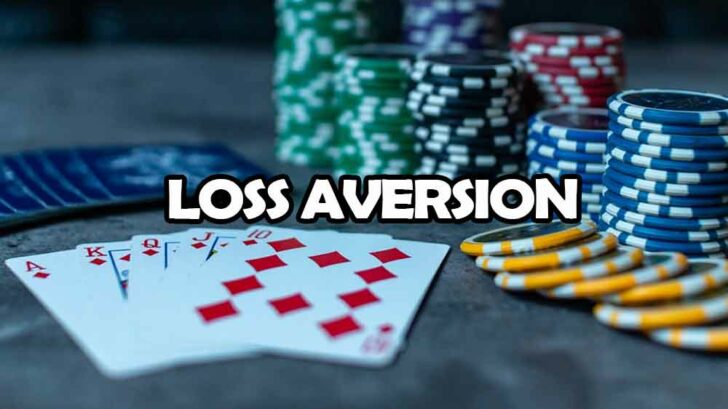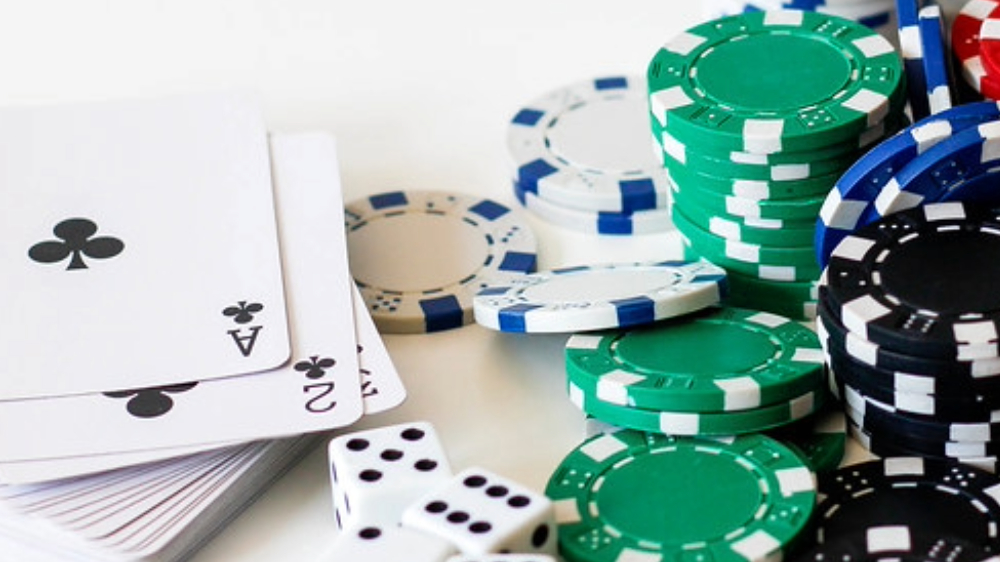Loss Aversion And Poker

What Is Loss Aversion?
Loss aversion goes hand in hand with what psychologists call “the endowment effect”. Essentially this is where a person over-values whatever they possess. For example. You are selling off your old record collection on the internet. Because they’re old and meant a lot to you once, you ask for an inflated price. When the offers start to come in, you could easily be offended as they are much lower. In this scenario, you’re the one suffering from the endowment effect. And the buyers have a “reverse endowment effect”.
According to psychiatrist Richard L. Peterson in his book Inside the Investor’s Brain, “most people negatively value losses twice as intensely as they positively value gains.” To that end, we can see that for some, the hurt experienced after a loss is double that felt after a win. Selling is a roundabout way of losing. And buying is, in the same manner, a roundabout way of winning.
Cash Games vs. Tournaments
So it follows that having too much loss aversion is not really going to be a great idea for most poker players. But it’s 10 x worse for cash game players. Now in most tournaments, the most you can lose is a single buy-in. Ignoring the chance aspects, but comparing your buy-in to purchasing a lottery ticket isn’t that far from the truth. We’re comparing states of mind. It’s about ownership. The skilled and calm poker player will be careful with his chips. But once he bought them, they no longer belong to him. And that’s the right way of thinking about cash poker games. That’s because, in real cash games, it’s very hard to escape the endowment effect. many players struggle with accepting their buy-in loss.
Play Cash Games and Poker Tournaments at Intertops
Suffering When Winning
If you’ve ever played poker at the low stakes tables online, you’ll of witnessed a scene like this. A new player joins the table and soon manages to double his stack of chips. Suddenly the player ups and leaves. In fact, it’s such a common phenomenon in poker, they even have a name for it, “hit and run” or “going South”. But we know it as loss aversion. The player simply leaves the table after winning some chips. Or if a player takes part in his chips whilst still in the game. Oh..this last move is normally prohibited at most casinos.
Going Full Tilt When Losing
Most players have a mental idea of how much of their buy-in they’d be OK to lose. But this is a wrong-headed way of thinking. However you enter the poker game, either online or in-person, your buy-in no longer belongs to you. But this is a bitter pill for most gamblers to swallow. For some gamblers, it’s not difficult to get up after losing a quarter of their bankroll. For others, losing more than half of your bankroll is almost impossible to bear. So what do they do? They try and get even. Rather like an investor who’s watching the price of an asset falling. He wants to recover that loss without selling the asset itself.

Cash table games are similar, yet even more deadly than playing the stock market. One thing to keep an eye out for is how other players around the table view such a player. Once you’ve lost a lot of chips, then your position is no longer one of dominance. Therefore it’ll be that much harder to do any kind of intimidation play. The problem is being able to accept the possibility of cashing out with an even bigger loss. To leave earlier they’d be in better shape financially.
But the drive to continue playing until you break even will lead to a much worse result. They could lose everything in their efforts. Over time, they become more frustrated. And this leads to an unhealthy loop of continuously playing worse in a downward spiral where losses cause more frustration, which then feeds into yet more losses even at the best site to play poker.
What to Do About Someone Else’s Loss Aversion
Now if you happen to find yourself sitting at a gaming table with someone who’s suffering from severe loss aversion, there are a few scenarios that can play out. A player who quickly doubles his initial buy-in won’t be sitting around for long. This can be a little frustrating, as he’s essentially leaving with your money. But you shouldn’t worry too much, as he could have taken even greater advantage with some more momentum on his side. Now imagine the same guy is winning. Not so much but enough. Here’ he’ll be more cautious. With loss aversion, he’ll be consequently playing a more conservative game. In this situation, you can, therefore, be playing more aggressively.
And what if this guy is losing? This is a tricky situation, but it could play out well for you. If you can adapt your playing style to be looser, then there’s money to be won from a losing player. Try and be more carefree in your gambling approach. Don’t throw money away. But remember you’re playing the long game mentality. The reason for this more relaxed approach is that you’re really mentally goading him. If he doesn’t recover soon, then he’ll go full tilt. And that’s the moment you’ve been waiting for. You’ll now be in a great position to take advantage of his mental and emotional instability.

What to Do About Your Own Loss Aversion?
If this article is speaking to you, then we’re sorry to say that you are not in a good place. This level of loss aversion is unhealthy for a competitive poker player. On the whole, this way of dealing with these situations is going to be hard-coded into your DNA. There’s no easy solution. Earlier we mentioned Richard Peterson’s book. His advice for investors finds themselves a bag of nerves by loss aversion is simple. Make a plan.
For the poker player, this can mean already having an idea in advance of under what circumstances you’ll willing to stay at the poker table and at what exact point you’ll leave. Of course, it’s not going to be that cut and dried. After all, this is asking you to take into account your actual performance which is mighty subjective.
Sometimes with loss aversion, it’s all too much. In those cases, we see players staying at the games table until all their funds are gone. As long as there’s a game and they have some chips then it’s all good. But in spite of painting a picture that loss aversion is bad, it is in fact, something very useful in other circumstances. Fearlessness may be great for a positive run on the stock market or at the poker table. But it needs to be restrained and focused.
Click here to visit the Intertops Poker
















